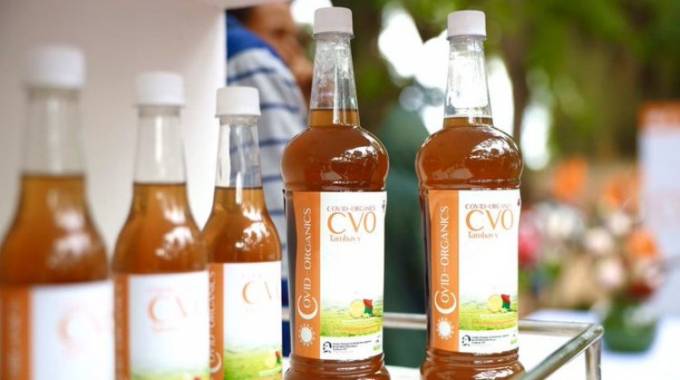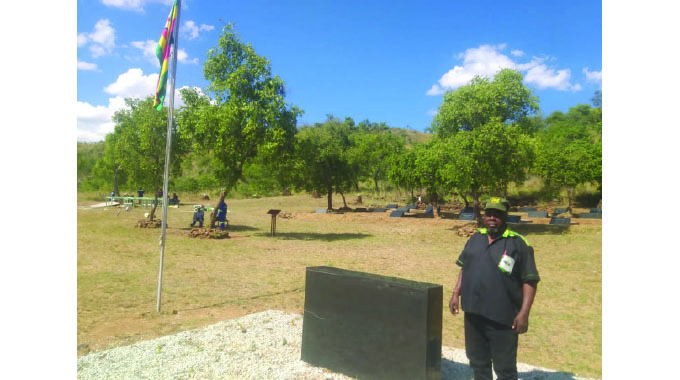Give African medicines a chance

Correspondent
The world is scrambling to get a treatment for Covid- 19. To date, save from the Madagascar cure claim, the world has not discovered anything to treat Covid-19. Sad is that whatever comes from Africa is dismissed with contempt exposing the world for its hypocrisy.
Developed countries are the only ones who claim to have a God-given power to research, find, produce and sell the treatment for any ailment.
The announcement by Madagascar that they found the treatment of Covid-19 infuriated global super powers.
The World Health Organisation (WHO) also warned Madagascar and in a statement said it did not recommend “self-medication with any medicines . . . as a prevention or cure for Covid-19”.
The world is in a time of crisis, and it needs all nations to first find an urgent solution to curb the rate of damage whilst looking for permanent solution.
If Madagascar was in America or Europe, their medication would have been approved.
As long as it is an African nation and regarded as less human no country will be allowed to use that medication.
WHO instead of being an impartial body seems to be controlled by the powers that be. It is high time for WHO to ask Madagascar how they made it possible.
In Africa, herbal medicines have been saving lives since time immemorial even before the emergence of Covid-19.
Recent events make it clear that Africa will always be looked down upon, while other continents jump to experiment their findings on Africans.
WHO describes traditional medicine, “as the sum total of the knowledge, skills, and practices based on the theories, beliefs, and experiences indigenous to different cultures, whether explicable or not, used in the maintenance of health as well as in the prevention, diagnosis, improvement, or treatment of physical and mental illness.”
Most traditional medicines systems are passed down from generation to generation through verbal teaching.
To date, in some parts of the world, the majority of the population continue to rely on their own traditional medicine to meet their primary health care needs.
When adopted outside of its traditional culture, traditional medicine is often referred as “complementary and alternative medicine.”
Among others, the most widely used traditional medicine systems today include those of China, India, and Africa.
African traditional medicine can further be described as a form of holistic health care system organised into three levels of specialty, namely divination, spiritualism, and herbalism.
Past research papers prove that the traditional healer provides health care services based on culture, religious background, knowledge, attitudes, and beliefs that are prevalent in his community.
According to a research by Ezekwesili-Ofili et al, illness is regarded as having both natural and supernatural causes and thus must be treated by both physical and spiritual means, using divination, incantations, animal sacrifice, exorcism, and herbs.
Herbal medicine is the cornerstone of traditional medicine, but may include minerals and animal parts.
Major obstacles to the use of African medicinal plants are their poor quality control and safety. The safety issue is determined by none Africans for Africa.
Because those who suffer from superiority complex scorn traditional medicine, its practices are still shrouded with much secrecy, with few reports or documentations of adverse reactions.
African medicine has a very bright future if viewed in the context of service provision, increase of health care coverage, economic potential, and poverty reduction. Formal recognition and integration of traditional medicine into conventional medicine will hold much promise for the future.
Because traditional medicine is frowned upon most people will use it, but will not record its success.
How can the Western world take our medicine seriously when we fail to do so ourselves?
In order for our medicine to be accepted we need to allow pharmacognosy. This is the study of the physical, chemical, biochemical, and biological implications of natural products for medicinal or health benefit purposes.
Specifically, this area must encompass the study of secondary metabolites, including alkaloids, glycosides, phenolic compounds, tannins, phytosterols, and terpenoids that are derived from nature, and is inclusive of plants as well as marine and terrestrial microbes and animals.
These compounds have potential medicinal applications for the prevention and treatment of numerous conditions and diseases, and may also serve as natural pesticides and herbicides.
Recently, Zimbabwe legalised the medical cannabis which would see our health system develop and which will bring millions in our economy.
Stakeholders have garnered new interest pertaining to a sustainable approach to cannabis and natural product research and drug development, an area now legalised for the benefit of the nation.
On the cannabis field some investors pretend to be very clever and try to outsmart their local partners. This happens when people think they are more clever than others.
Drugs of natural origin, which have roots in many medical traditions, are of inordinate significance due to the substantial growth in usage around the world.
In addition, nature-based medicines are the topic of increased inquiry in the quest for novel pharmacophores that hold the prospect of enhanced therapy.
Covid-19 has not moved at a fast rate in Africa than it has done in Europe and China. This should show the world that a cure maybe found in Africa.
The Madagascar Covid-19 cure must be taken to the lab, tested and developed at a larger scale to benefit everyone.
The award of the 2015 Nobel Prize in Physiology or Medicine went to a professor who used African nature drugs to produce nature-based drugs Avermectin and Artemisinin, used in the treatment of infections caused by roundworm parasites and malaria, respectively, underscores such trends, and highlights, in particular, the potential value of naturally derived medicines in targeting neglected tropical diseases.
Which means a virus like Covid- 19 can be treated in Africa. If we treat this without prejudice a cure from Murehwa in Zimbabwe known as zumbani and the same zumbani found in Madagascar will have been taken to laboratories and more lives will have been saved.
As humans exploit nature’s unique gifts for alleviating disease, this should be achieved with safety, sustainability, and equitable benefit-sharing considerations in mind.
It is high time Africa must stand up and shame the devil.
Our medicine should be accepted without segregation or discrimination.







Comments